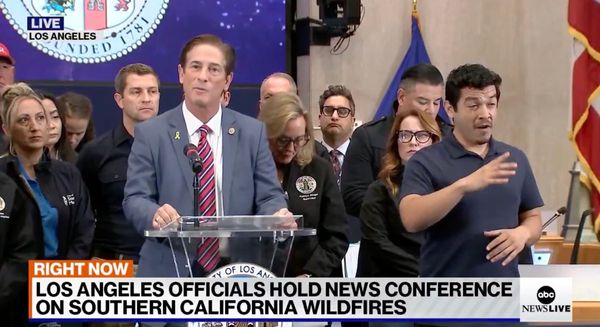
“It’s a bit fresh, isn’t it?” says Ken Cook, a retired headteacher, as an icy wind blasts down into the valley.
It might be lunchtime on a sunny day, but one of the many thermometers in Cook’s front lawn reads -9C – not unsurprising since he lives in the village of Copley, near Bishop Auckland in County Durham, which is known as the snowiest place in England, receiving an average of 53 snow days a year.
“There hasn’t been as much snow as usual for the time of year, but there has been some,” Cook says. By some, he means 6cm, which fell on Tuesday and still sits on the grass, temperatures having remained too low to melt it.
Cook has been a volunteer for the Met Office for 53 years. Alongside rows of verdant sprouts and large carrots, his garden contains a complete weather station, with whirring instruments gathering data, including sunlight hours, wind speeds, precipitation and air and ground temperatures.
Copley may be a beautiful village with spectacular views, but the readings from these gadgets indicate it would be a challenging place to live for someone unable to afford their energy bills.
In August, Keir Starmer announced a cut to the winter fuel payment, a benefit of up to £300 for all pensioners in the UK which was introduced under Labour in 1997.
Only pensioners in receipt of pension credit and other benefits are now eligible – something for which the prime minister faced backlash from within his own party, with dozens of Labour MPs abstaining from the Commons vote. Labour’s own estimates this week revealed between 50,000 and 100,000 pensioners would be pushed into poverty every year as a result of the cut.
According to the government's own figures, means-testing Winter Fuel Payments will push 50,000–100,000 more pensioners into poverty annually.
— Zarah Sultana MP (@zarahsultana) November 20, 2024
In the sixth largest economy, no-one should have to choose between heating or eating.
That’s why I voted against this harmful policy.
In other parts of the UK, efforts have already been made to rectify this. Scottish Labour has pledged to reverse the cut in Scotland, and pensioners in Northern Ireland affected by the cut will be given a one-off £100 payment from Stormont.
The average annual energy bill in England, Scotland and Wales will rise by 1.2% to £1,738 from January, with the energy regulator Ofgem saying on Friday its price cap would increase by £21 a year for a typical household.
The charity Age UK said pensioners would be “bitterly disappointed” by the price rise, heaping pressure on them at a time of higher inflation and rising mortgage costs.
Though Cook is retired, he does not think he will be affected by the cut to the winter fuel allowance.
“As a Labour voter, I don’t like to argue against what they’ve done, but it will affect some in the village,” he says.
Across the road, Raymond Dixon describes the cut as “shameful” and says he must be more careful about using energy in his cottage. “I voted for Labour, hoping they’d sort out the health service. But what have they done? They’ve taken the money off us.”
Dixon, a retired electrician, lives in the middle of a row of poorly insulated terrace houses owned by a private landlord.
“I’ve had one storage heater on 24 hours a day recently because there’s frost in the downstairs toilet,” he says.
He does not have a washing machine – “I wash my clothes in a bucket” – because he would rather use the hot water from his water heater than consume extra energy using a machine that heats the water.
Dixon says he could understand the need to make tough decisions when the government inherited what it claimed was a huge £22bn black hole in the nation’s finances.
“But why didn’t they just reduce the winter fuel payments? It doesn’t have to be one thing or another.
“Everything seemed all right when Rishi Sunak was in,” he says. “I didn’t vote for Labour thinking they’d be taking our bloody fuel payments. I don’t think any of them have a clue.
“I won’t be voting Labour again,” he adds.
Chris, who is walking his dogs, Molly and Belle, says the fuel allowance cuts are “disgusting”.
“Don’t get me started,” he says. “I blame my mother. She voted Labour.”
Chris is a Conservative voter who is retired from a 30-year career in the armed forces, and though he is not old enough to be affected by the cuts, his mother, who is in her 80s, and his mother-in-law have both lost theirs. However, he says they are indifferent to losing the payment. “I’m probably more annoyed than they are.”







